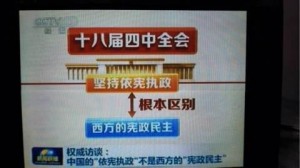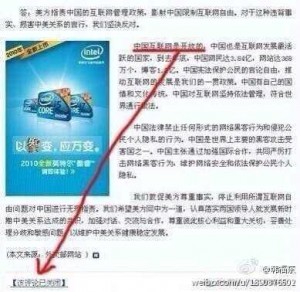From: Long Cheng <long.cheng@pao-pao.net>
Source: https://pao-pao.net/
Orginial chinese text: https://d38yf3i0kj4hnb.cloudfront.net/article/256
Weibo is Dying Out
Bei Daijin 贝带劲
In November, 2014, 163.com suddenly announced that it would close down its microblog service, or Weibo. Three months ago, qq.com announced that it would not add new features to its microblog service. It is unsure how long qq’s microblog will last before it also closes down. Sohu CEO Zhang Chaoyao (张朝阳) no longer uses his own Sohu microblog account to interact with users. Chen Tong (陈彤), Sina’s vice president, left Sina with a group of key personnel, and this was regarded as the fall of the biggest internet portal in China. “Big V” Ning Caishen (宁财神) announced that he would sell his account [with 6 million followers] for only 50 yuan, or about $5, and it’s hard not to taste the dour self-mockery of the popular online opinion leader. Such is the devastated scene of social media in China backed by each major internet portal website and used by millions of Chinese. Weibo is dying. Of what?
Statistics from January, 2014, show that the number of Weibo users in 2013 declined by 27,830,000 in 2013 compared to the number of users at the end of 2012, and the level of activity had also plummeted. It is reported that 80 percent of the 500 million Weibo users have hardly ever logged in. The number of daily active users has fallen from 60 million in mid-2013 to 25 million in the beginning of June, 2014. While we cannot verify these numbers for the time being, published statistics have sufficiently shown that the popularity of Weibo has been declining since 2013.
Some people think the fall of Weibo is due to companies failing to find the right business model, and others believe that the rise of WeChat drew users away from Weibo. Still others are of the opinion that excessive advertisements, marketing accounts and “chicken-soup” postings diluted valuable information. These might all be valid causes, but more important causes seem to lie elsewhere.
Weibo have never been a pure social media platform; it has always been a form of media, and its vitality arose from disseminating and commenting on public events, known as User Generated Content (UGC). But suppression of free expression is a political reality in China, and the State Internet Information Office’s (SIIO) censorship mechanism has been strangling the Weibo. A user becomes a criminal, punishable by law, when a rumor is shared over 500 times, and reposting a “rumor” can be a liability too. One constantly hits on “sensitive words” like hitting on nail snags. Posts are frequently deleted by behind-the-scene censors, not to mention suspension or deletion of accounts altogether. More and more people join the ranks of the “Reincarnation Party,” people who come back to Weibo with new accounts after their original accounts were shut down. One can be summoned by police for interrogation, or detained, or even tried and sentenced, for a single Weibo posting. Fear puts a damper on a user’s enthusiasm, if not killing it altogether. To divert users’ attention away from sensitive public events while maintaining Weibo’s vitality, service providers have resorted to cheap entertainment, resulting in a large number of quality users leaving Weibo.
Both the quantity and quality of UGC have declined and there is no sign of a reversal. Nowadays even the comment section is often closed up either by the censor or by the users themselves.
Last November, Xinhua reported that SIIO held a conference on the management of online comment. During the conference, 29 websites, including Xinhuanet.com, People.com.cn, Sina.com, Sohu.com, 163.com and qq.com, signed a pledge, promising that they would “discipline” online comments. The Deputy Director of SIIO Ren Xianliang (任贤良) said, “[We must] use the law to manage online comments in order to direct public opinion online, build an eco-system for online public opinion, to legalize the rules of cyberspace. These are an integral part of governing the Internet according to the law. And to govern the Internet according to the law, we must put halters on the comment sections.”
 Caijing’s Sina Weibo account attached a photo image of the Pledge when posting news about the conference. The Pledge contains 18 categories of information that cannot be allowed. Below is a brief analysis of each of the 18 categories.
Caijing’s Sina Weibo account attached a photo image of the Pledge when posting news about the conference. The Pledge contains 18 categories of information that cannot be allowed. Below is a brief analysis of each of the 18 categories.
29 websites pledged to eliminate the 18 categories of online comments. Click to enlarge.
1. Information that is in violation of the basic principles of the Constitution.
This covers comments that voice support for universal values from the comments sections.
The CCTV’s xinwen lianbo (evening news) that evening emphasized that “China’s governance according to the constitution is fundamentally different from western countries’ constitutional democracy.”
2. Information that endangers state security, divulges state secrets, subverts state power or undermines national unity.
This category prohibits those who are in the know because of their jobs to reveal the untruth perpetrated by the official media or “experts” working for the government.
3. Information that harms the national reputation and interest.
This can include all the so-called negative news. Censorship at media outlets begins from topic selection, blocking out the dissemination of negative news to begin with. Users who wish to expose government abuses and social injustice will be constrained by this rule.
4. Information that instigates ethnic hatred and discrimination, and undermines ethnic unity.
The CCP’s ethnic policies have been a focal point of increased ethnic tension. Information regarding Uighurs’ violent resistance or Tibetans’ self-immolations has always been sensitive content, and this restriction echoes the judicial interpretation issued in October by the Supreme People’s Court criminalizing separatist speeches.
5. Information that instigates regional discrimination and regional hatred.
Discriminatory comments based on geographic origins have always been a popular form of joke. It looks like jokes will be no joking matter anymore.
6. Information that undermines national policies on religion and promotes “evil cults” and superstition.
This is in sync with the government’s crackdown on “evil cults” that promote anti-totalitarian thinking. It is more about “anti-totalitarian thinking” than “evil cults.”
7. Rumors that disrupt social order or undermine social stability.
This is the “pocket crime,” a vaguely defined offences that can cover anything, and the government holds the authority to interpret what is a “rumor” that “disrupts social order and undermines social stability.”
8. Vulgarity and pornography, information about gambling, murder or terrorism, or crime abetting.
Postings of violent clashes not covered by official media outlets can fall into this category.
9. Insults, defamation, or information that harms other people’s legitimate rights and interests.
This category will probably take care of netizens’ mocking of the fifty-centers, corrupt officials, untruthful media, or verified government social media accounts.
10. Threatening violence against others, or carrying out “human-flesh” searches.
This rule make grassroots anti-corruption activities impossible, thus helping protect corrupt or abusive local officials and the much despised fifty-centers.
11. Minors’ privacy information without written consent from their legal guardians.
This rule effectively neutralizes the once wildly popular campaign “Snap a Photo and Rescue a Kidnapped Child” that encourages citizens to take photos of homeless children and post them online.
12. Abusive language bad for social order and customs.
This can be another giant “pocket” to cover a wide range of the expressions, including heated debates that often lead to use of strong language.
13. Infringement of intellectual property rights.
Intellectual property rights should indeed be protected. Plagiarism is rife on Weibo, but “selective enforcement” is probably inevitable.
A MOF spokesman states, “In China internet is open….” but the comment section of the official post is closed.
14. Disseminating advertisements or other marketing information。
To market on Weibo, one is required to register and pay a membership fee. Advertisers who do not want to pay membership or were unwilling to provide their true identities have been using the comment section, and from now on, they will no longer be able to do so.
15. Using languages other than commonly used languages.
This rule targets postings that use a foreign language or words to issue sensitive information to avoid censorship.
16. Information unrelated to the original posts.
As many rights activists’ postings, and even accounts, are repeatedly censored, they resort to posting their complaints in the comment section of popular posts in order to attract attention to their cases. This rule is designed to eliminate this type of information.
17. Information that is unreadable or is written in a combination of characters and marks to circumvent censorship.
This rule targets netizens’ smart use of puns and other language innovations to dodge key words censorship.
18. Other information whose dissemination is prohibited by laws and regulations.
This will take care of anything that’s missed by the 17 rules above.
Lack of confidence in state-owned media had once made Weibo a main source of information for many Chinese. However, as online censorship has steadily intensified and netizens have been criminalized for online expression, the free flow of information has been choked off, driving away a great number of users who are on Weibo for real news and information but can’t get it anymore. These 18 pledges will further render ineffective netizens’ battle-tested self-defense skills against censors, making online dissemination dangerous. Weibo is dying of suffocation, as the government is determined to occupy and control it totally, leaving no stone unturned.

